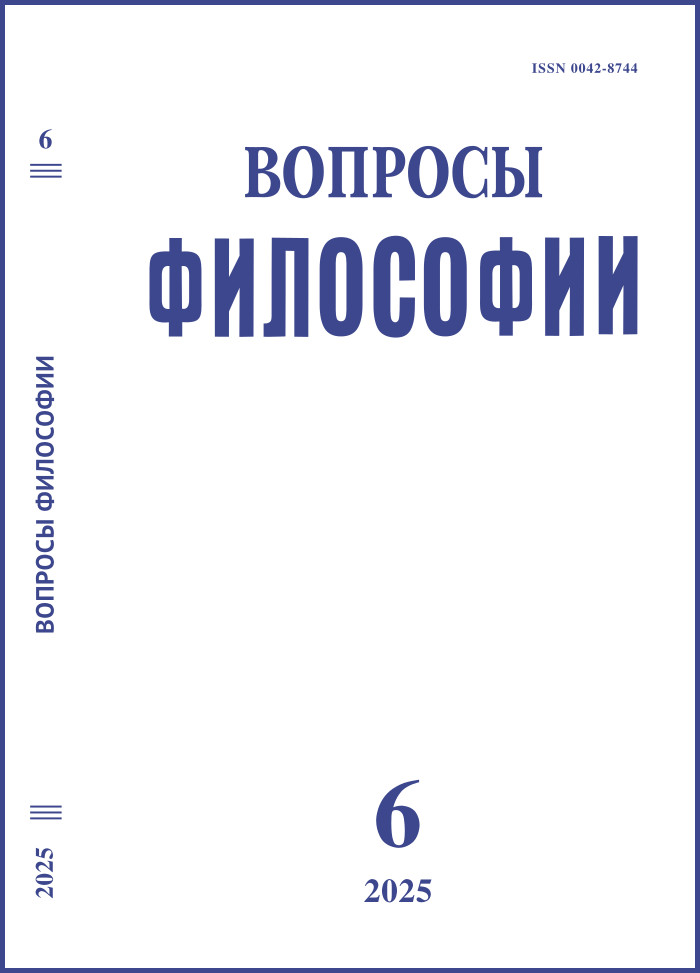Social Relays Theory as an Anti-Naturalistic Program of Epistemology
DOI:
https://doi.org/10.21146/0042-8744-2025-6-74-79Keywords:
science, knowledge, empirical analysis, social relay, social relay theory, cognition, theories of knowledge, epistemology, philosophy of science, naturalized epistemology, anti-naturalismAbstract
This article advances the thesis that M.A. Rozov’s theory of social relays constitutes an anti-naturalistic research program in epistemology. The naturalistic stance, exemplified in W.V.O. Quine’s formulation of “naturalized epistemology”, presupposes that knowledge is treated as “natural objects” governed by inherent laws and rules. Consequently, the task of naturalized epistemology is to identify and describe these laws of the “life of knowledge”, employing the methods and empirical insights of the natural sciences (including cognitive and neurosciences). This transformation of epistemology, which involves a revision of basic concepts and which is based on the assumption that knowledge is a physical object, leads to internal contradictions and normativism in relation to science. In contrast, Rozov’s theory of social relays grounds cognition in its social nature, positing that knowledge arises from the reproduction of collective activities and societal practices mediated by direct exemplars. Thus, Rozov found and described another ontological reality, different from nature, but equally autonomous. By developing a distinctive “wave ontology” and analytical techniques that integrate the reflexivity of the knowing subject, the theory of social relays establishes the conceptual foundation for a comprehensive anti-naturalistic epistemology. This framework challenges the naturalistic reduction of knowledge to deterministic laws, emphasizing instead the socially constituted dynamics of cognitive practices.

